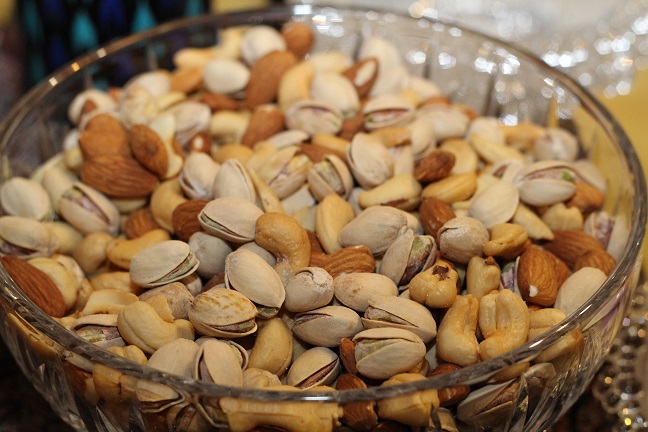
by Tammera J. Karr, PhD
One of my favorite nuts is pecans for baking and cooking. They are softer and do not cause canker sores in the mouth like walnuts can. The buttery rich flavor of pecans makes them one of the most popular nuts native to American. They are rich in nutrients, minerals, and vitamins that are essential for health.
For over a millennia, pecans have been an important staple in the Native American food supply. Indigenous Americans are who taught early European colonists how to harvest, utilize, and store pecans as a vital source of nourishment through harsh winters.
Health Benefits of Pecans
Pecans offer unique benefits to the human diet; pecans are the top 15 foods known for their antioxidant activity, according to the USDA. Pecans are an excellent source of vitamin-E, especially rich in gamma-tocopherol. Vitamin E is a powerful lipid soluble antioxidant, required for maintaining the integrity of cell membrane of mucus membranes and skin by protecting it from harmful oxygen-free radicals.
A 2012 study reported eating a handful of pecans every day can help protect your nervous system by delaying age-related motor neuron degeneration, including ALS (amyotrophic lateral sclerosis) and Lou Gehrig’s disease.
According to a study released in 2010 – “Epidemiologic studies have associated nut consumption with a reduced incidence of coronary heart disease and gallstones in both genders and diabetes in women. Limited evidence also suggests beneficial effects on hypertension, cancer, and inflammation. Interventional studies consistently show that nut intake has a cholesterol-lowering effect, even in the context of healthy diets, and there is emerging evidence of beneficial effects on oxidative stress, inflammation, and vascular reactivity. Blood pressure, visceral adiposity and the metabolic syndrome also appear to be positively influenced by nut consumption.”
Pecans are very rich sources of important B-complex vitamins such as riboflavin, niacin, thiamin, pantothenic acid, vitamin B-6, and folates. Together, these vitamins work as co-factors for the enzyme metabolism inside the human body.
Another phytochemical contributing to its antioxidant activity found in pecans is ellagic acid, which keep several carcinogenic properties from proliferating. Beta-carotene, lutein, and zeaxanthin in pecans contribute to reducing the effects of free radicals, protecting from disease, cancer, and infection. These American nuts are rich in monounsaturated fatty acids like oleic acid and an excellent source of phenolic antioxidants. Regular addition of pecan nuts in the diet helps to decrease total as well as LDL cholesterol and increases HDL cholesterol levels in the blood.
Pecans are rich sources of minerals. Manganese is excellent for your heart. Pecans contain copper, critical for energy production in your cells, magnesium (helping to maintain a healthy immune system, nerve function, heart rhythm, and muscle and bone strength) and zinc (for optimal immune function, protein synthesis, DNA synthesis, cell division, and wound healing). The phosphorus, iron, calcium, and selenium content in pecans hold their own as nutritional assets.
Candied Maple Pecans
4 cups raw pecans
2/3 cup pure maple syrup
1 tablespoon filtered water
1 teaspoon ground cinnamon
1/8 teaspoon ground clove
1/8 teaspoon ground ginger
1/8 teaspoon cayenne pepper
Pinch of Celtic sea salt
Preheat the oven to 350°F (180°C).
Line a baking sheet with parchment paper and roast the pecans for 8 to 10 minutes, until slightly crispy and fragrant.
In a skillet over medium heat, warm the maple syrup and spices for about 5 minutes, until warm and slightly bubbling.
Stir in the warm roasted pecans and filtered water. Fold through for 3 to 4 minutes constantly stirring until the nuts caramelize.
Spread the pecans back on the lined baking tray, and allow to cool and harden for about 20 minutes.
Store in a sealed container.
Happy Holiday Season filled with real food, laughter, and love.
Resources:
Health Benefits of Nut Consumption